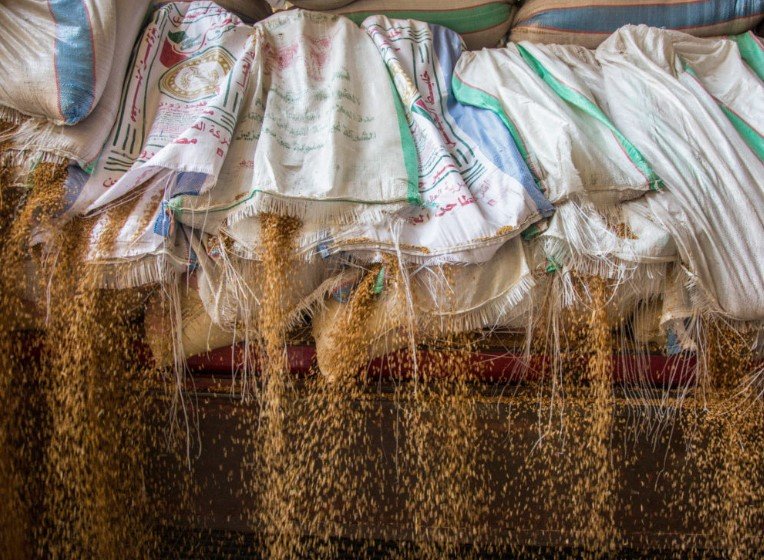Strategic talks in Cairo highlight Ukraine’s push to solidify agricultural exports to Egypt, its top MENA trading partner
Ukraine and Egypt are making a fresh push to deepen their agricultural trade relationship, with officials from both sides agreeing to take specific steps to boost exports of grain and sunflower oil. The announcement follows high-level talks in Cairo and comes as Kyiv seeks to reinforce its role as a key food supplier to the Middle East and North Africa amid shifting global trade dynamics.
No details were shared on what those steps are or when they’ll kick in—but the signal is clear: food security, supply chains, and politics are deeply intertwined, and both countries are betting on each other.
Quiet Meeting, Big Implications
There was no red carpet. No sweeping press conference. Just a simple statement from Ukraine’s embassy in Cairo confirming the agreement.
Ukrainian Ambassador Mykola Nahornyi met with top brass from Egypt’s state grain buyer, the Future of Egypt for Sustainable Development. What followed was an affirmation of deeper cooperation on food exports—especially in wheat and sunflower oil.
Even without specifics, the intent stood out.
Egypt’s appetite for foreign wheat is massive. And Ukraine, despite being in the middle of a grinding war, is still trying to hold onto its place at the export table.
One-sentence pause here. Because sometimes trade talks happen in whispers.

Numbers Tell the Real Story
Forget the diplomatic language. The trade data shows where things stand—and where they’re headed.
Between January and June this year, Ukraine exported $776.5 million worth of goods to Egypt. That’s not pocket change. And it wasn’t just grain either.
Here’s how it breaks down:
-
Wheat: 1.31 million metric tons
-
Corn: 1.06 million metric tons
-
Soybeans: 360,000 metric tons
These figures come directly from the Ukrainian embassy, and they reveal something critical: despite the ongoing war with Russia and frequent disruptions to Black Sea routes, Ukraine has managed to keep grain flowing.
That’s no small feat.
Egypt’s Role in All This
If Ukraine is one of the world’s biggest grain exporters, Egypt is one of its hungriest buyers.
The country depends heavily on imported wheat—not just for market demand, but also for its vast subsidized bread program that feeds millions. In fact, Egypt has often topped the list of the world’s largest wheat importers.
For Cairo, Ukraine isn’t just a supplier—it’s a safety net.
Egypt has traditionally sourced grain from both Ukraine and Russia. But given the geopolitical fallout of the war, Cairo has increasingly leaned into diversifying partners while keeping one foot firmly planted in Eastern Europe’s breadbasket.
One-sentence break here. Because no one wants all their wheat in one basket.
What’s Actually on the Table?
While the embassy’s statement didn’t spell out a formal timeline or policy roadmap, several possibilities are likely in play behind closed doors:
-
Streamlining customs procedures for Ukrainian grain arriving at Egyptian ports
-
Offering pricing incentives for long-term contracts
-
Coordinating shipping logistics across the Mediterranean
-
Boosting Egyptian investments in Ukrainian agri-tech or logistics
And let’s not forget—sunflower oil. Ukraine is one of the world’s largest producers of it, and Egypt’s domestic production can’t meet demand. That creates room for growth far beyond wheat alone.
The Bigger Picture: More Than Just Trade
This isn’t just about food. It’s also about positioning.
Ukraine is fighting a war and trying to maintain its economic relevance abroad. Egypt, meanwhile, is navigating inflation, food price pressures, and global supply chain disruptions.
This agreement, vague as it is, suggests a mutual bet on resilience.
Here’s a quick snapshot of total bilateral trade for H1 2025:
| Trade Metric | Value (USD) |
|---|---|
| Total Ukrainian exports to Egypt | $776.5 million |
| Total bilateral trade | $947.9 million |
| Top commodity | Wheat (1.31 million tons) |
That’s not just grain talk—it’s economic diplomacy in numbers.
What Comes Next?
There’s a lot we still don’t know. When will these steps roll out? Will Russia respond competitively? Could Egypt help Ukraine bypass Black Sea bottlenecks via alternate routes?
For now, the answers remain behind closed doors.
But one thing’s for sure—Ukraine wants to lock in stable food trade ties in the region, and Egypt’s shelves and bakeries might just depend on it.
